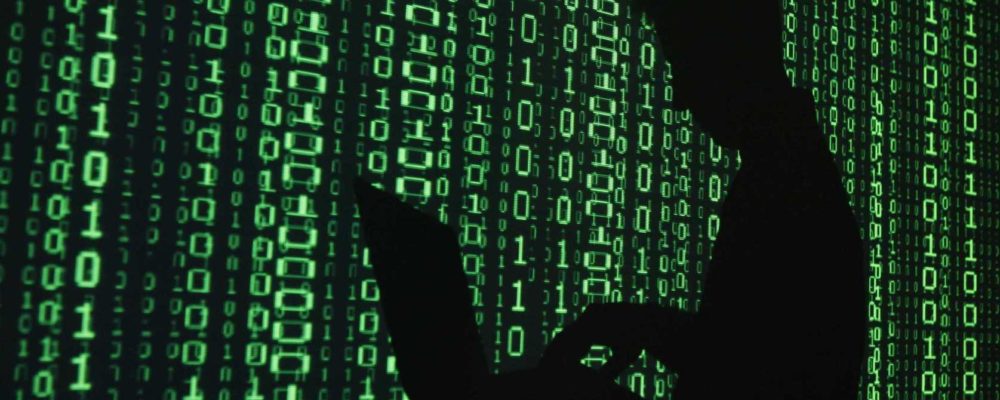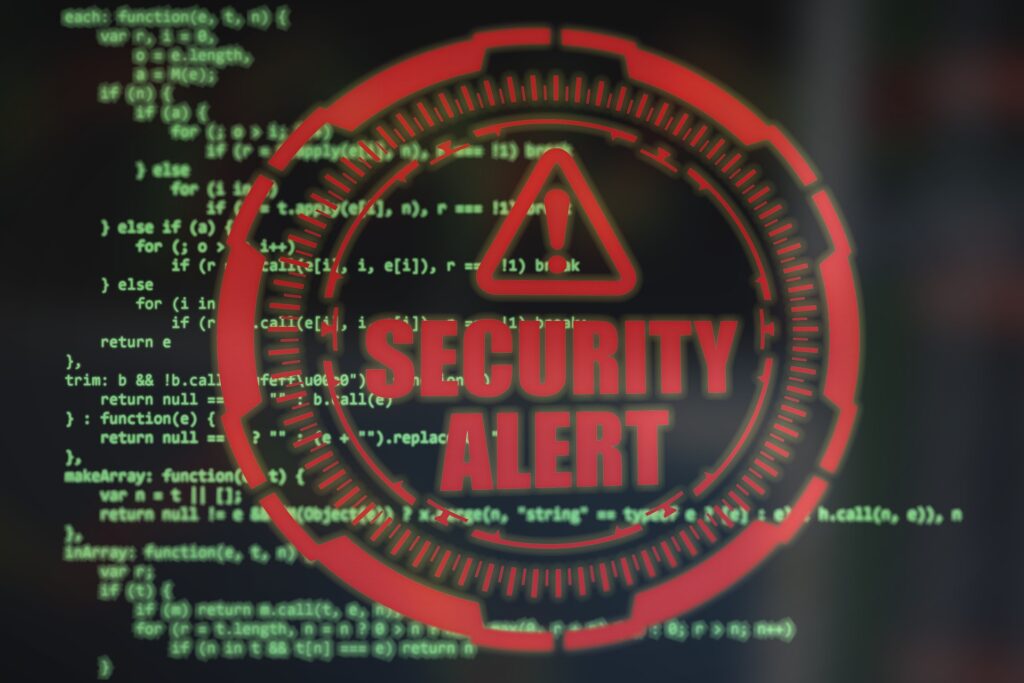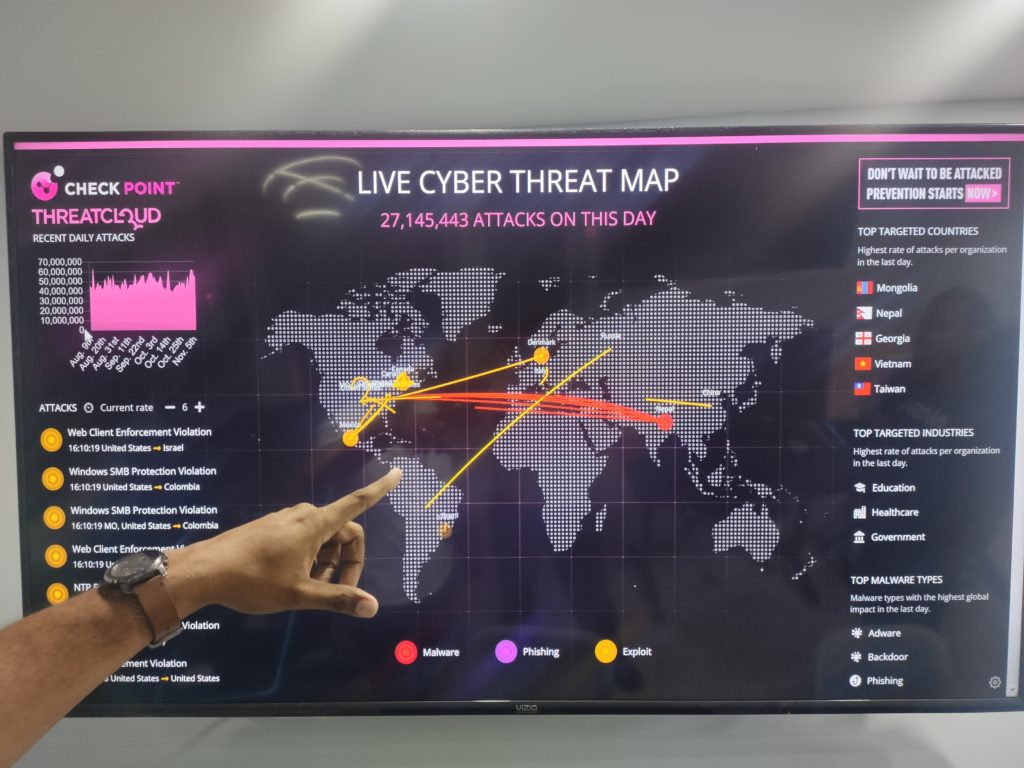

By the Police High Command
In the modern era, the concept of security has expanded far beyond the physical realm. While law enforcement agencies have long focused on patrolling streets and solving crimes, a new frontier has emerged—cybersecurity. As more of our societies embrace the digital age, we also become increasingly vulnerable to cyber threats that can disrupt lives, economies, and national security.
It is against this backdrop that Police Commissioner Dr Kevin Blake‘s recent column in the weekly Force Orders could not have come at a more opportune time. His words signal a deep and serious commitment to tackling the dangers that loom in cyberspace, where criminals can cause just as much devastation as they do in the physical world. Dr Blake‘s message to the JCF membership this week was unequivocal: cybersecurity is not just a concern for tech experts, but for every single person who uses digital tools.
He underscored this point by reminding us that, in today‘s world, we are all engaged in cyberspace every day. “Far too often when we hear the term cybercrime‘ or cybersecurity‘ we immediately begin thinking that this is something for the tech expert and not for me,” he stated. However, as he rightly pointed out, we are now living in an age where the devices we once viewed as simple phones have become portals to the world, connecting us not only to our loved ones but also to our bank accounts, personal information, and, for police officers, to critical policing tools.

The significance of cybersecurity cannot be overstated. A cyber-attack can wreak havoc, not only by breaching personal privacy but also by endangering national security. The Commissioner‘s strong stance reflects an understanding of the stakes. “What had been traditionally a cellular telephone is now your personal window to the world… it is the interface to your bank… and probably most importantly for us as police officers, it is a vital tool of trade that provides access to well-needed policing information while on duty,” he noted. With this in mind, the message is clear: the tools we use every day are also potential vulnerabilities that cybercriminals can exploit.
One of the most compelling points Dr Blake raised was about the nature of cyber-attacks. Most of these attacks are initiated on the client side, meaning they often rely on tricking individuals into making mistakes—such as clicking on a malicious link or replying to a fraudulent message. As he put it, “most cyber-attacks are client-side initiated… they usually target the average user who may be tricked into believing that a fake email or text message is authentic and click a link or reply to a text thereby introducing a usually invisible malware with potentially disastrous effect.” These seemingly innocuous actions can open the floodgates to devastating consequences, including identity theft, financial loss, and the exposure of sensitive personal information.

For police officers and law enforcement agencies, the risks are even more pronounced. Cybercriminals are constantly searching for ways to exploit vulnerabilities within security forces to access confidential information, disrupt investigations, or even sabotage critical operations. Dr Blake rightly warned of the “potentially disastrous effect” of these attacks, reminding his colleagues that malware can discreetly sit on devices, capturing usernames, passwords, and sensitive data that can be sold on the dark web or used for extortion. In this digital era, the battle is not only against street-level criminals but against invisible enemies lurking in cyberspace.
The Commissioner‘s remarks signal the seriousness with which the JCF High Command is treating the issue of cybersecurity. This is not just about protecting the Force‘s operations; it is about protecting the integrity of Jamaica‘s national security. In a time when public trust in law enforcement is critical, the JCF‘s approach to cybersecurity must be thorough, professional, and proactive. As Dr Blake stated, ―We cannot escape this evolution of digitization nor can we escape the need to be cyber aware and understand that cybersecurity begins with you.
These words reflect a recognition that, in order to be effective in a digital world, the JCF must prioritize cyber awareness and ensure that all its members—from the top brass to the newest recruits—are equipped to handle the unique challenges posed by cyber threats. To this end, the Commissioner‘s praise for the JCF‘s Technology Branch is particularly noteworthy. “I think it is quite in order to recognize the Technology Branch—which includes the Information Communication Technology Division (ICTD) and the Telecommunications Division—for their visionary thinking and solution-oriented approach in hosting several cyber awareness sensitizations and trainings across the entire JCF,” he wrote. This is a positive step towards ensuring that the Force remains at the forefront of cybersecurity, safeguarding both its members and the public from the growing threats in cyberspace.

Yet, Dr Blake‘s message goes beyond institutional efforts. He urged every member of the JCF to take personal responsibility for their own cybersecurity education. “I urge you to do your own self-educating,” he encouraged, noting that there is ample literature available that presents the topic in accessible and engaging ways. This call for self-education is crucial because, in a rapidly evolving digital world, staying informed and vigilant is the best defence against the ever-changing tactics of cybercriminals. For the public, the Commissioner‘s stance should be reassuring. It signals that the JCF is not only focused on traditional crime-fighting methods but is also acutely aware of the need to defend against cybercrime in all its forms.
As more of our citizens embrace digital services—from online banking to social media—the risks associated with cyberspace grow. But the JCF‘s proactive approach to cybersecurity, coupled with Dr Blake‘s firm leadership, sends a clear message: the JCF is taking the fight against cybercrime seriously and is committed to protecting the nation‘s security in both the physical and digital realms.

As we move further into the digital age, it is vital that law enforcement agencies like ours remain agile and responsive to the changing nature of crime. The threats of tomorrow will not look like those of yesterday, and it is incumbent on the JCF to evolve in kind. Cybersecurity is not just a technical issue; it is a matter of public safety, national security, and institutional integrity. Dr Blake‘s words are a reminder that cybersecurity begins with each of us. Whether you are a police officer, a public servant, or a member of the public, we all have a role to play in protecting the digital spaces we inhabit. The Commissioner‘s strong stance on cybersecurity is a positive sign of how seriously the JCF takes this issue—and how committed they are to ensuring that the Force is ready to tackle the challenges of the future.







Comments